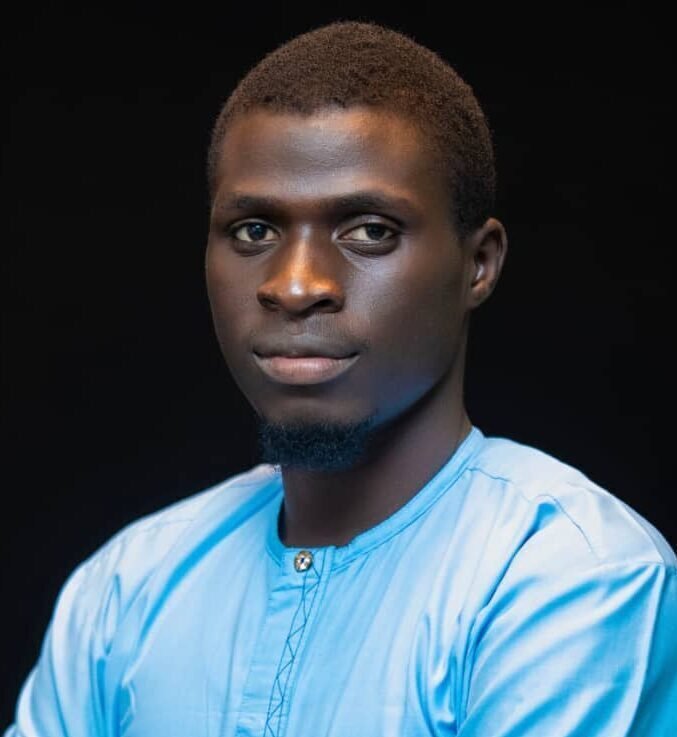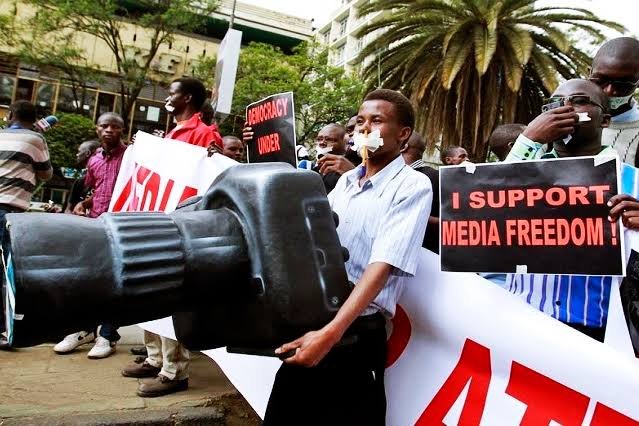Africa’s long, uneven march toward press freedom has once again hit a grim checkpoint. In the latest World Press Freedom Index, published by Reporters Without Borders (RSF), even though a handful of African nations like South Africa, Namibia, and Gabon made progress in the freedom of the press, the broader trend across the continent shows more repression.
The index assesses the state of journalism in 180 countries and indicates that only nine of 54 African countries recorded improvements in press freedom over the last 12 months. In contrast, systemic repression, violence, and state-sanctioned media manipulation continue to stifle independent journalism in countries like Nigeria, Cameroon, Ethiopia, Uganda, and Rwanda.
South Africa and Namibia remain continental leaders, maintaining global rankings within the top 30. Their success is attributed to strong institutions and robust legal protections like the South Africa’s court order decriminalising unauthorised communications interception, aimed to safeguard the confidentiality of journalists’ phone conversations and the need to protect their sources. Gabon, surprisingly, made a significant leap from 56th to 41st, suggesting a possible shift toward reform following recent political changes.
But these gains look like exceptions. For most African countries, the media freedom landscape is generally unimpressive. Nigeria, Africa’s most populous nation and a key media hub, maintained its 122nd position, but its press freedom score plummeted from 51 percent in 2024 to 46 percent in 2025. The decline underscores rising state hostility toward the media.
Due to persistent arrest of journalists, the RSF report described Nigeria as one of West Africa’s “most dangerous and difficult” countries for journalists. “They are regularly monitored, attacked, and arbitrarily arrested,” it noted. Press Attack Tracker also, a project by the Centre for Journalism Innovation and Development (CJID), recorded 135 incidents of press freedom violations in 2024 alone.
According to Premium Times, Media Rights Agenda (MRA), a non-profit focused on media rights and digital freedom reported institutions meant to protect citizens have become instruments of fear for journalists. Between January and October 2024, law enforcement and security agencies were responsible for 45 out of 69 documented attacks, making up approximately 65 percent of all incidents.
Another instance occurred in May 2024 when operatives of the Intelligence Response Team (IRT) abducted Daniel Ojukwu, a journalist with the Foundation for Investigative Journalism (FIJ). Ojukwu disappeared for several days, with no access to legal counsel or communication. He was later found in police custody in Lagos on May 3rd, ironically, World Press Freedom Day.
His abduction and secret detention speak volumes about the current climate for journalists in Nigeria. “While I was isolated from the world, I had no access to cash or external support, so I starved from Wednesday, May 1 to Friday, May 3,” Ojokwu said in his reporter’s diary published on FIJ. Issues like these are indicators that even symbolic days dedicated to press freedom hold little weight in the face of authoritarian tendencies. The Liberalist earlier reported that this growing hostility is sowing fear among aspiring journalists, making then reconsider their journalism practice aspirations.
Cameroon, a country dubbed as one of the world’s worst jailers of journalists, slipped one step backward in the 2025 index. Earlier ranked 131st last year, it currently holds 130th with a score drop from 44 percent to 42 percent. RSF cited Cameroon as having one of Africa’s most diverse but dangerous media landscapes. “Journalists, especially those who are critical or outspoken, face arbitrary arrests, detentions, [Strategic Lawsuit Against Public Participation] SLAPP suits, kidnappings, and assassination,” the report stated.
In many cases, security operatives resort to forceful attacks and unlawful imprisonment of journalists. The case of Tsi Conrad exemplifies this disturbing trend. In December 2016, as Cameroonian police opened fire on a group of protesters in Bamenda, killing four, Conrad began filming the incident with his recording equipment. It wasn’t long before the police spotted him, subjected him to a brutal beating, and dragged him into a vehicle.
He was later arraigned before a military tribunal, which sentenced him to 15 years in prison. As of 2025, Conrad has spent six years in detention, with nine years remaining on his sentence.
One of the darkest episodes occurred in May 2023 with the assassination of Anye Nde Nsoh, the Anglophone bureau chief for The Advocate. His death highlighted the deadly risks of reporting in Cameroon’s conflict-ridden Anglophone regions, where violence and repression are used to control narratives.
In the latest ranking, Eritrea retains its position as the worst country in Africa and in the world in terms of press freedom. It recorded a score of just 11 percent, dropping five points from 2024. The situation in the country is that, “all independent media have been banned since 2001,” RSF reported. Only government-controlled outlets like Eri-TV and state-run newspapers are allowed to operate, turning journalism into a mouthpiece for the regime.
In Ethiopia, another regional powerhouse, the index position dropped from 141st in 2024 to 145th in 2025. Uganda also took a dive, falling from 128th to 143rd. Both countries are experiencing intensifying crackdowns on media outlets critical of the government, particularly in the lead-up to elections or during civil unrest.
According to RSF, one of the underlying causes of Africa’s press freedom woes is the concentration of media ownership. In many countries, media houses are owned by powerful political actors or individuals aligned with ruling parties, which compromises newsroom independence and reduces the space for dissenting voices.
The 2025 Freedom in the World report by Freedom House reinforced RSF’s findings. It classified only eight African nations as “Free.” The rest—46 countries—fell under the categories of “Partly Free” or “Not Free.” That means most Africans live in environments where democratic participation is either restricted or completely denied, and the press, often a frontline defender of democracy, is under siege.
“Press freedom is experiencing a worrying decline in many African nations,” RSF concluded. “The region also recorded the highest number of countries with declining economic indicators. In many cases, this makes the media more vulnerable to political influence.”
Media freedom can often be disconnected from economic and financial freedom, argued Anne Bocandé, RSF’s editorial director. In fact, “guaranteeing freedom, independence, and plurality in today’s media landscape requires stable and transparent financial conditions,” she said. “Without economic independence, there can be no free press.”
This financial vulnerability also creates a vicious cycle: struggling newsrooms become more dependent on state subsidies or political patrons, eroding editorial independence and public trust.
In a co-authored commentary, Akitunde Babatunde, the Executive Director of CJID, and Adebayo A. Aare, the organisation’s project coordinator, observed that despite the critical role of the media in informing the public and setting the democratic agenda, Africa’s journalism landscape faces unprecedented challenges.
“Governments across the continent—armed with sophisticated surveillance tools—increasingly work to stifle press freedom,” the duo wrote. “Legal crackdowns, internet shutdowns and physical attacks have become common tactics in silencing independent media, despite the fact that many African constitutions and declarations guarantee freedom of association and expression.” at many African constitutions and declarations guarantee freedom of association and expression.”














